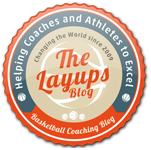For a number of high school athletes, the opportunity to compete in college sports certainly is the “coming true” of their biggest dream. All the same, college students end up with a form of culture shock after they become aware of the particular difficulties created all by their involvement in this next stage of their academic career. Even though it is necessary for all learners to be familiar with the best way to arrange their limited amount of time in order to level academic and social life, it’s important that college athletes acquire this ability of time-management as soon as possible.
Organize yourself
Balancing academic, community and team commitments will put a strain on your available free time. You can’t risk to lose valuable time searching for that lost training programme or trying to find last week’s paperwork. Even in the event that organizing isn’t your personal style, at least aim to make sure that your stuff is at one place. Be certain to stow the chemistry and biology book along with the class room notes. Acquire a couple of folders or ringbinders to hang loose papers for each and every class. Also, make a document with your lecturer’s contact details and work hours, just in case you have a need to reach him in a hurry.
Plan for tomorrow
A great way to arrange your time comfortably is always to know what’s approaching. College differs drastically from highschool. You will have assignments due all the time your class comes together, and challenges can creep up on you abruptly. Get yourself a full-size desk calendar or think about a convenient one-month calendar on your laptop. Add the work deadlines of any homework, papers, assignments and examinations, additionally add study groups, special occasions, appointments, as well as practice and game times of your sports team. Go with a contrasting colored pencil or marker for each class and another one for athletic obligations. Make sure to hang the calendar over your work desk or in a place where there’s no doubt you’ll see it constantly. With this visual reference point, it is a lot easier for you to arrange courses around athletics and social activities.
Use your time wisely
Actively playing college sports consists of not only extended hours of training and being competitive, in addition: much time is spent commuting. During the time your class mates are in their rooms working on a paper or meeting with a work group at the local library, you’re caught on a bus or train for a couple of hours. If you must commute an extended distance to a game, use that period of time wisely. Catch up on your class reading, take some notes for an assignment, carry your laptop and get going on that important paper, or learn for the approaching exam. It’s not hard to lose this time enjoying looking out of the window or listening to your iPod, therefore commuting is an effective means to obtain some ground in your courses. It will also help take your body and mind off the action, meeting or league game ahead.
Team up
As a result of a large number of college athletes having different agendas and obligations which other classmates do not have, you’ll find yourself sharing classes with teammates and other sports athletes. Connect on your slow days or arrange a time every week for a particular study group. It is easy to share concepts, discuss ideas, help eachother out on classes someone could possibly have missed, and get the support to help you do well in classes. This will help you save time and effort and potential disappointments.
Get assistance
Most likely ther will come a time in your academic activity when you get behind. As being an athlete, this could be an aspect of the reality in your situation. It’s essential to adhere to your tasks and use your energy and time as cleverly as it can be, but do not be afraid to ask for help, if you need to. Most college grounds offer effective teaching courses and some athletic teams even have dedicated teachers or academic support helpers. These classmates and experts are around to help you catch up if you’re having difficulties. They will give you basic study skills allowing you to get the best out of your time, and to help you develop a plan for an effective outcome. Additionally, maintain consistent connection with your mentors. You actually don’t want to get in situation of turning every assignment in late and accusing your sport. Make sure your educators know who you really are and that they are aware of your circumstances. The more attention you put forth, the more they will be happy to work with you if you should need particular attention due to your athletic obligations.
[box type=”shadow”]Picture credit: Håkan Dahlström • Creative Commons Attribution[/box]
